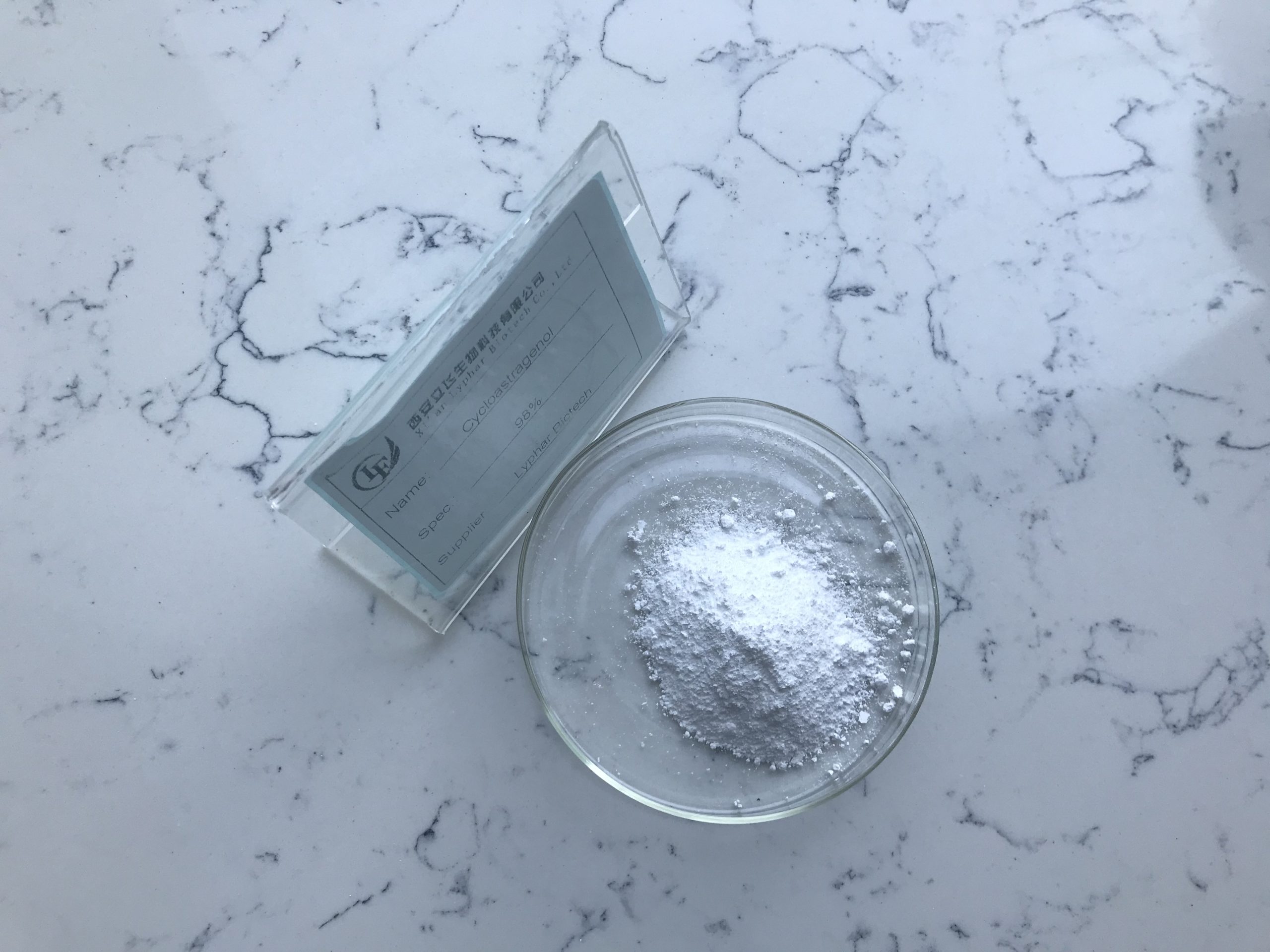Cycloastragenol is a natural compound that has gained attention for its potential health benefits, particularly its role in telomere maintenance and its potential anti-aging effects. Telomeres are the protective caps at the end of chromosomes that naturally shorten as cells divide over time, leading to cellular aging. Cycloastragenol is derived from the Astragalus membranaceus plant, which has been used in traditional Chinese medicine for centuries.

Here is a comprehensive overview of Cycloastragenol based on information available up until September 2021:
1. Telomere Length and Aging:
Cycloastragenol is believed to influence telomerase activity, an enzyme that helps maintain and elongate telomeres. Longer telomeres are generally associated with healthier cells and potential longevity. Some studies have suggested that Cycloastragenol might enhance telomerase activity, leading to the preservation of telomere length and potentially slowing down cellular aging.
2. Research and Potential Benefits:
While there is a growing interest in Cycloastragenol’s potential benefits, it’s important to note that much of the research on this compound is still in the preliminary stages, and many of its effects have primarily been studied in cell cultures and animal models. Some potential benefits that have been explored include:
- Anti-Aging: Some animal studies have suggested that Cycloastragenol might help delay the aging process and improve age-related conditions. However, more rigorous clinical trials are needed to establish its effectiveness in humans.
- Immune Function: There is some evidence to suggest that Cycloastragenol might have immunomodulatory effects, potentially enhancing immune responses. This could be beneficial for individuals with compromised immune systems.
- Cardiovascular Health: Some studies have indicated that Cycloastragenol might have a positive impact on cardiovascular health by reducing inflammation, oxidative stress, and promoting vascular health. These effects could contribute to a reduced risk of cardiovascular diseases.
- Neuroprotection: Limited research suggests that Cycloastragenol might have neuroprotective properties, potentially benefiting cognitive function and reducing the risk of neurodegenerative diseases. However, more research is needed to confirm these findings.
3. Safety and Side Effects:
Cycloastragenol is generally considered safe when used in appropriate doses, but more long-term studies are needed to fully understand its safety profile. Some potential side effects that have been reported include gastrointestinal discomfort, headaches, and skin reactions. As with any supplement or compound, it’s important to consult with a healthcare professional before using Cycloastragenol, especially if you have any underlying health conditions or are taking other medications.
4. Availability:
Cycloastragenol supplements are available for purchase, but it’s important to be cautious when selecting products. Due to the limited regulation of dietary supplements, the quality and purity of different products can vary. Look for reputable brands that provide transparent information about their sourcing, manufacturing, and testing practices.
5. Future Research:
While the initial research on Cycloastragenol is promising, more well-designed clinical trials are needed to determine its true efficacy and potential long-term effects in humans. Researchers are continuing to investigate its mechanisms of action, potential benefits, and safety.

In summary, Cycloastragenol is a compound derived from the Astragalus membranaceus plant that has shown promise in preserving telomere length and potentially impacting aging-related processes. However, more research is needed to establish its effectiveness, safety, and potential applications in humans. If you are considering using Cycloastragenol, it’s important to consult with a healthcare professional to make informed decisions based on your individual health needs and circumstances.
